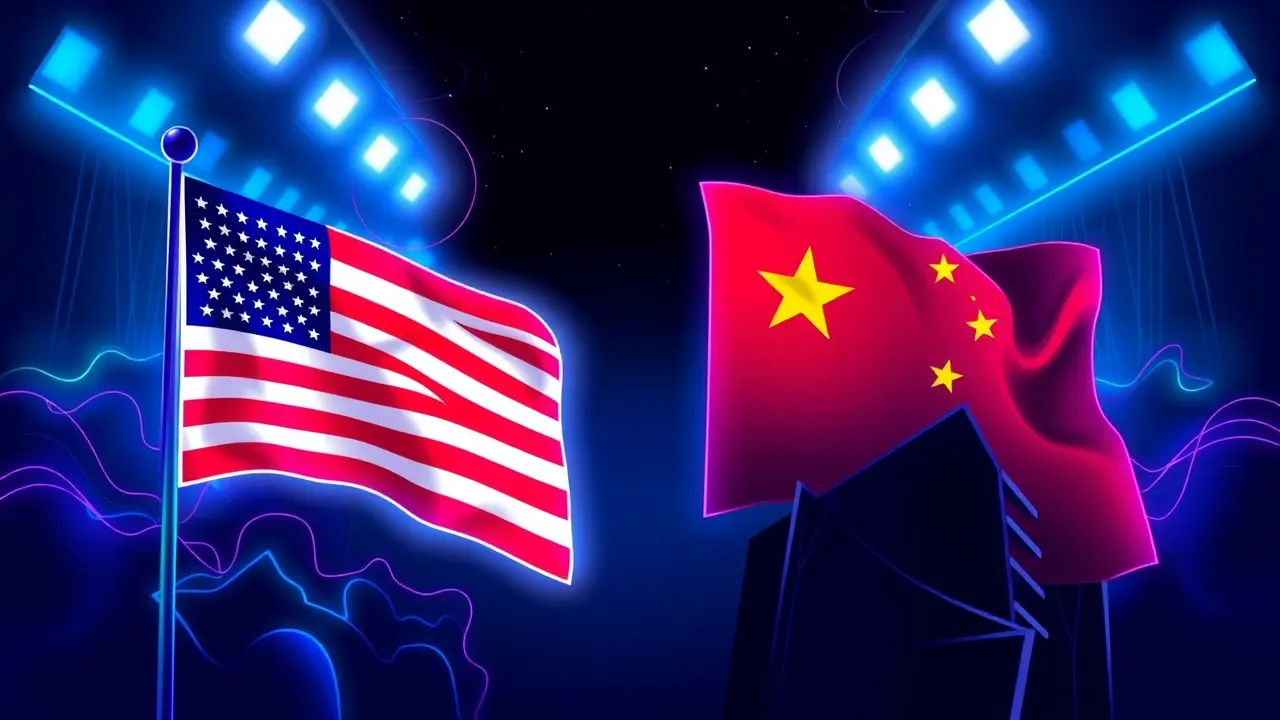Alibaba Chairman Optimistic About US-China Trade Relations
So, Joe Tsai—yeah, the guy who owns the Brooklyn Nets, because apparently running a global e-commerce empire isn't enough of a full-time gig—just dropped some serious optimism bombs about US-China trade relations that hit different if you've been following the geopolitical drama like it's the NBA Finals. In a CNBC interview that dropped Monday, Tsai basically said he's not buying the doom-and-gloom narrative that we're headed for a full-blown economic cold war; instead, he's betting that the leaders in Washington and Beijing have the wisdom to recognize this is a 'hugely symbiotic relationship,' which is a fancy way of saying they're stuck with each other like LeBron and the Lakers, for better or worse.Picture this: two superpowers trash-talking on the court, throwing tariff elbows and sanction flagrants, but deep down, they know the game falls apart without both teams showing up—the US needs China's manufacturing muscle and consumer market, while China relies on American tech and investment, making this less a battle to the death and more a heated rivalry where both sides secretly respect the grind. Tsai, speaking on the sidelines of an NBA event because of course he was, brings a unique perspective as the ultimate connector between these worlds; he's seen the playbook from the boardroom to the basketball court, and his take feels like a timeout huddle where the coach reminds everyone that winning the championship means playing smart, not just playing dirty.Let's rewind the tape: remember when Trump started the trade war back in 2018, slapping tariffs like they were technical fouls, and China retaliated with its own moves, leading to years of uncertainty that had businesses sweating more than a rookie in the playoffs? Fast-forward to today, and despite the tension—think export controls on semiconductors and TikTok bans—the numbers don't lie: bilateral trade hit a record $690 billion in 2022, proving that even amid the drama, the economic ties are thicker than a playoff beard. Experts I've chatted with, like former trade negotiators and econ professors, say Tsai's optimism isn't just wishful thinking; it's rooted in the reality that decoupling is a fantasy, because supply chains are too entangled, and any attempt to fully split would trigger a global recession faster than a blown ACL.But let's not ignore the skeptics who point to the escalating tech war, where the US is clamping down on AI chip exports and China is pushing for self-reliance, creating a scenario that feels less like a symbiotic dance and more like a high-stakes game of chicken. Still, Tsai's vibe echoes what we've seen in sports—rivals like Bird and Magic hated each other on the court, but their competition lifted the entire NBA, and similarly, US-China friction might just drive innovation rather than destruction.The consequences of getting this wrong are staggering: imagine supply chain meltdowns, inflation spikes, and market crashes that make the 2008 financial crisis look like a preseason scrimmage, but if Tsai's right, we could see a detente that stabilizes global growth and maybe even leads to joint ventures in green tech or AI ethics. Bottom line: Tsai's playing the long game here, and his confidence feels like a clutch three-pointer in the fourth quarter—it might not guarantee a win, but it sure changes the momentum, and for anyone watching this geopolitical showdown, that's a reason to stay tuned.
JA
Jamie Larson123k2 days ago
wait what if this is all just a setup for some big business move he's about to make 👀 feels like there's a play here we're not seeing
0
